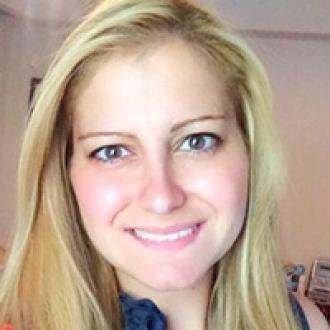- Undergraduate
Mathematics and Statistics BSc (Hons)
Overview
Why study at the University of West London?
- Ranked 30th university in the UK - The Guardian University Guide 2025
- Number 1 London university for overall student satisfaction - National Student Survey 2024**
- Best university for Student Experience and Teaching Quality in the UK - The Times and Sunday Times Good University Guide 2024
The world of work is increasingly reliant on science, technology, engineering and mathematics (STEM) skills and this Mathematics and Statistics degree is a trusted and relevant qualification designed to meet employers’ needs for skilled STEM graduates.
On the mathematics and statistics course, you will learn to use a range of computing and analytical skills to solve scientific, engineering and finance problems.
Your studies will combine fundamental mathematical and statistical methods with highly sought-after skills in logic, problem-solving, numeracy and more.
Our BSc Mathematics and Statistics degree is fully accredited by the Institute of Mathematics and its Applications (IMA) and you will graduate with the knowledge and technical ability required for a successful career within a diverse range of sectors, from finance to government.

Select your desired study option, then pick a start date to see relevant course information:
Start date:
If your desired start date is not available, try selecting a different study option.
Why study Mathematics and Statistics with us?


What our students say…
The lecturers are fantastic and I don't think I would get as many work experience opportunities at any other university.




Course detail & modules
Professional organisations are keen to hire mathematics graduates to help them analyse problems, formulate questions and find solutions, and there is a multitude of business applications with which to utilise the skills you will develop on this Mathematics degree.
Throughout this mathematics degree, you will acquire a broad understanding of mathematics and its applications.
With the support of software to enhance your learning experience, you will learn how to apply mathematical and statistical techniques to tackle realistic problems, evaluate the outcomes, and interpret the results to build your own bank of knowledge.
A variety of teaching methods, designed to suit different learning styles, will be used to help you develop including:
- lectures
- seminars
- tutorials
- workshops
- peer review and observation
- student-led teaching with in-class presentations
- the Maths Café which provides a high level of additional support for all modules.
As you study, you will develop transferable skills that you can use across different STEM roles.
If you are looking for a diverse mathematical statistics course that will prepare you for the changing needs of employers, this course is for you.
Our BSc Mathematics and Statistics degree is fully accredited by the Institute of Mathematics and its Applications (IMA).
Compulsory modules
-
Linear Algebra
The aim of this module is to extend your knowledge of matrices, vectors and systems of linear equations and to introduce the abstract concepts of vector spaces, linear maps and inner products.
-
Discrete Mathematics
This module provides you with the basic mathematical concepts and techniques of discrete structures. It includes the study of Mathematical Logic, Sets, Relations and Functions.
The module will develop your skills in expressing problems in mathematical language, using mathematical techniques to find solutions to problems and communicating mathematical ideas clearly and succinctly.
-
Introduction to Programming
On this module you will learn how to program computers and other devices using a modern programming language.
Module topics include:
- algorithm development
- fundamentals of computer programming
- control structures
- input/output
- functions
- structuring of data
- introduction to object-oriented programming.
The module is introductory in nature and assumes no prior programming knowledge. The module includes weekly computing practical.
-
Probability and Statistics
This module is an introduction to probability theory and statistical methods. The module leads to a deeper understanding of probability distributions, random variables and their role in sampling. Tools such as hypothesis testing are presented and a basic introduction to the statistical software SPSS is provided.
-
Mathematics and Statistics by Computer
-
Calculus 1
This module introduces you to the most important techniques in Calculus. In particular, the module leads to a deeper understanding of the concepts of differentiation and integration. Tools and techniques for differentiation and integration will be presented in detail.
Compulsory modules
-
Real and Complex Analysis
Real analysis deals with numbers along the one dimensional number line, while complex analysis deals with numbers in two dimensions. This module will introduce you to the rigorous development of both real and complex analysis and will help to develop your skills in deductive reasoning.
-
Calculus 2
The aim of this module is to give you knowledge and techniques for working with vectors and vector fields. You'll extend your understanding of calculus and will be introduced to the concept of multivariable calculus as well as calculus of vectors.
-
Advanced Engineering Mathematics
On this module, you will extend your knowledge of the fundamental mathematical methods used in engineering. The module includes study of Laplace transforms, Fourier analysis, ordinary differential equations, introduction to partial differential equations, and complex variables. In addition, the module will develop your skills in expressing problems in mathematical language, using mathematical techniques to find solutions to problems and communicating mathematical ideas clearly and succinctly.
-
Numerical Methods
This module aims to introduce you to the numerical techniques required to solve different mathematical problems motivated by the engineering and the science sector.
-
Financial Mathematics
-
Statistical Modelling
This module aims to develop understanding and proficiency in statistical modelling by introducing you to the normal theory linear model. It will provide you with the ability to formulate and apply these models in a range of practical settings, to carry out associated inference appreciating how this relates to the general likelihood inferential framework, and to perform appropriate model selection and model checking procedures.
Compulsory modules
-
Ordinary and Partial Differential Equations
This module aims to study both the qualitative and quantitative aspects of Ordinary and linear Partial Differential Equations.
-
Dynamical Systems
The module aims to develop an understanding of the elements of non-linear differential equations and dynamical systems. The aim of this module is to expose you to qualitative and quantitative methods for dynamical systems, including nonlinear ordinary differential equations, maps and chaos. The phenomena studied occur in many physical systems of interest.
-
Stochastic Processes
The module aims to introduce you to stochastic processes and their applications.
-
Operational Research and Optimisation
The module aims to introduce you to linear programming, the Simplex Method and the Transportation Algorithm. The module will enable you to solve linear programming problems as primal problems or using duality. The module includes an introductory theory for nonlinear programming problems by demonstrating the application of Lagrange Multiplier Theory as well as tackling optimisation problems
-
Project
You will investigate a topic of interest and prepare a project proposal. You will then present your ideas to the school for approval and once this has been approved, you will begin a detailed literature review of your chosen field. You will choose and follow a suitable development methodology leading to an implementation which you will evaluate.
Entry requirements
These can include:
- A Levels at grade B, B and B, or above
- BTEC Extended Diploma with Distinction, Distinction, Merit
- Access to HE Diploma
- T Levels
Your Level 3 qualifications must include Mathematics or Statistics.
You also need GCSE English and Maths (grade 9 - 4 / A* - C) or Level 2 equivalents.
Looking for BSc (Hons) Mathematics and Statistics with Foundation Year?
Mature applicants (aged 21+): If you do not hold the qualifications listed but have relevant work experience, you are welcome to apply. Your application will be considered on an individual basis.
Level 5 (year 2) entry
To directly enter the second year of this course you will need to show appropriate knowledge and experience. For example, you are an ideal candidate if you have 120 undergraduate credits at Level 4 or a CertHE in a related subject area.
Level 6 (year 3) entry
To directly enter the third year of this course you need to show appropriate knowledge and experience. For example, you are an ideal candidate if you have 240 undergraduate credits (at Levels 4 and 5), a DipHE, Foundation Degree or HND in a related subject area.
Looking for BSc (Hons) Mathematics and Statistics with Foundation Year?
You need to meet our English language requirement - a minimum of IELTS 5.5 for each of the 4 individual components (Reading, Writing, Speaking and Listening). Visit our English language requirements page for information on other English language tests we accept.
You also need academic qualifications at the same level as UK applicants. In some countries where teaching is in English, we may accept local qualifications. Check for local equivalents.
We offer pre-sessional English language courses if you do not meet these requirements.
Looking for BSc (Hons) Mathematics and Statistics with Foundation Year?
Mature applicants (aged 21+): If you do not hold the qualifications listed but have relevant work experience, you are welcome to apply. Your application will be considered on an individual basis.
Level 5 (year 2) entry
To directly enter the second year of this course you will need to show appropriate knowledge and experience. For example, you are an ideal candidate if you have 120 undergraduate credits at Level 4 or a CertHE in a related subject area.
Level 6 (year 3) entry
To directly enter the third year of this course you need to show appropriate knowledge and experience. For example, you are an ideal candidate if you have 240 undergraduate credits (at Levels 4 and 5), a DipHE, Foundation Degree or HND in a related subject area.
Looking for BSc (Hons) Mathematics and Statistics with Foundation Year?
Fees & funding
Please note:
- Fees for the 2026/27 academic year and onwards may be subject to Government regulation and change.
- Tuition fees are charged for each year of your course. If your course runs for two years or more, you will need to pay the fee for each academic year at the start of that year.
- If your course runs for less than two years, the cost above is for your full course and you will need to pay the full fee upfront.
- If no fee is shown above then the fees for this course are not available yet. Please check again later for updates.
Funding your studies
You may be eligible for a student loan to cover the cost of tuition fees, or a maintenance loan. Additional funding is available to some types of students, such as those with dependants and disabled students.
We offer generous bursaries and scholarships to make sure your aspirations are your only limit. In recent years, hundreds of students have received our Full-time Undergraduate Student Bursary.
Additional scholarships specifically for computing and engineering students are also on offer.
View full details, including conditions and eligibility.
Please note:
- Fees for the 2026/27 academic year and onwards may be subject to Government regulation and change.
- Tuition fees are charged for each year of your course. If your course runs for two years or more, you will need to pay the fee for each academic year at the start of that year.
- If your course runs for less than two years, the cost above is for your full course and you will need to pay the full fee upfront.
- If no fee is shown above then the fees for this course are not available yet. Please check again later for updates.
International students - funding your studies
We offer scholarships for international students including International Ambassador Scholarships.
Further information about funding and financial support for international students is available from the UK Council for International Student Affairs.
Teaching staff

Professor Anastasia Sofroniou
Anastasia Sofroniou is a Professor of Mathematics and Course Leader for the BSc (Hons) and MSc Mathematics and Statistics. She received her BSc Mathematics with Economics from University College London, an Interdisciplinary MSc in Mathematics from Kings College London and Imperial College London, a certificate course in Data Analysis for Management from London School of Economics and Political Science and her PhD in Applied Mathematics from University College London.
During her research studies, she was awarded the Andrew Rosen Prize for research excellence in Applied Mathematics and twice, the Lighthill Scholarship Award in Mathematics. Her research interests lie within the field of Nonlinear Dynamics and Chaos and more recently she has been active in Educational Mathematics.
She is a Principal Fellow of the Higher Education Academy (PFHEA), a Fellow of the Institute of Mathematics and its Applications (FIMA), and a member of the London Mathematical Society and The Mathematical Association.
Anastasia Sofroniou is a Professor of Mathematics and Course Leader for the BSc (Hons) and MSc Mathematics and Statistics. She received her BSc Mathematics with Economics from University College London, an Interdisciplinary MSc in Mathematics from Kings College London and Imperial College London, a certificate course in Data Analysis for Management from London School of Economics and Political Science and her PhD in Applied Mathematics from University College London.
During her research studies, she was awarded the Andrew Rosen Prize for research excellence in Applied Mathematics and twice, the Lighthill Scholarship Award in Mathematics. Her research interests lie within the field of Nonlinear Dynamics and Chaos and more recently she has been active in Educational Mathematics.
She is a Principal Fellow of the Higher Education Academy (PFHEA), a Fellow of the Institute of Mathematics and its Applications (FIMA), and a member of the London Mathematical Society and The Mathematical Association.
Study & career progression

There is a range of potential jobs for mathematics and statistics graduates. You could go on to have a successful mathematics career with organisations that deal with:
- fiscal analysis and prediction
- meteorology
- environmental science
- engineering
- pharmaceuticals
- research
- market analysis
- risk assessment
- financial modelling
- stock-market trading
- education at all levels (with additional qualifications).
Mathematics graduates with higher degrees in computer science will be able to work with organisations that require advanced modelling skills.
You may also want to progress your studies to explore a related field or specialise on a postgraduate course.
How to apply

Head to the UCAS website where you can apply using:
- our institution code - W05
- the UCAS course code (below)
Want to ask us a question first? We would love to hear from you. Contact us free on:
Apply for this course
- Institution code
- W05
- UCAS code
- currentVariantData.field_p_cv_ucas_code
Next steps after making your application
We aim to make a decision on your application as quickly as we can. If we need any more information about your qualifications, we will be in touch.
In the meantime, come and visit us and find out more about what studying at UWL is like. Sign up for an open day or join a campus tour.
Visit us and see for yourself
Talk to our tutors and find out about our courses and facilities at our next open day or join a campus tour.
Our prospectus
All of our courses in one place - download now or order a hard copy.
We're here to help
Any questions about a course or studying at UWL? We're here to help - call us on 0800 036 8888 (option 2, Monday – Friday 10am-4pm) or email us on courses@uwl.ac.uk.

You can apply to us in two ways:
- on the UCAS website you will need our institution code (W05) and the UCAS course code (at the top of this page)
- directly on our website – follow the ‘apply now’ link below
Want to ask us a question first? Our dedicated international students’ team would love to hear from you.
- Ask the International Recruitment Team a question
- learn more about international student applications
- find out more about why you should study in London at the Career University.
Apply for this course
Next steps after making your application
We aim to make a decision on your application as quickly as we can. If we need any more information about your qualifications, we will be in touch.
In the meantime, come and visit us and find out more about what studying at UWL is like. Sign up for an open day or join a campus tour.
Visit us and see for yourself
Talk to our tutors and find out about our courses and facilities at our next open day or join a campus tour.
Our prospectus
All of our courses in one place - download now or order a hard copy.
We're here to help
Any questions about a course or studying at UWL? We're here to help - call us on 0800 036 8888 (option 2, Monday – Friday 10am-4pm) or email us on courses@uwl.ac.uk.
Search for courses
Student life at UWL
Important notes for applicants
Disclaimer
*Modern universities - defined as higher education institutions that were granted university status in, and subsequent to, 1992.
**The National Student Survey 2023 and 2024 - Average of answers to all questions by registered student population. Excludes specialist institutions.
Testimonials - our students or former students provided all of our testimonials - often a student from the course but sometimes another student. For example, the testimonial often comes from another UWL student when the course is new.
Optional modules - where optional modules are offered they will run subject to staff availability and viable student numbers opting to take the module.
Videos - all videos on our course pages were accurate at the time of filming. In some cases a new Course Leader has joined the University since the video was filmed.
Availability of placements - if you choose a course with placement/internship route we would like to advise you that if a placement/internship opportunity does not arise when you are expected to undertake the placement then the University will automatically transfer you to the non-internship route, this is to ensure you are still successful in being awarded a degree.






